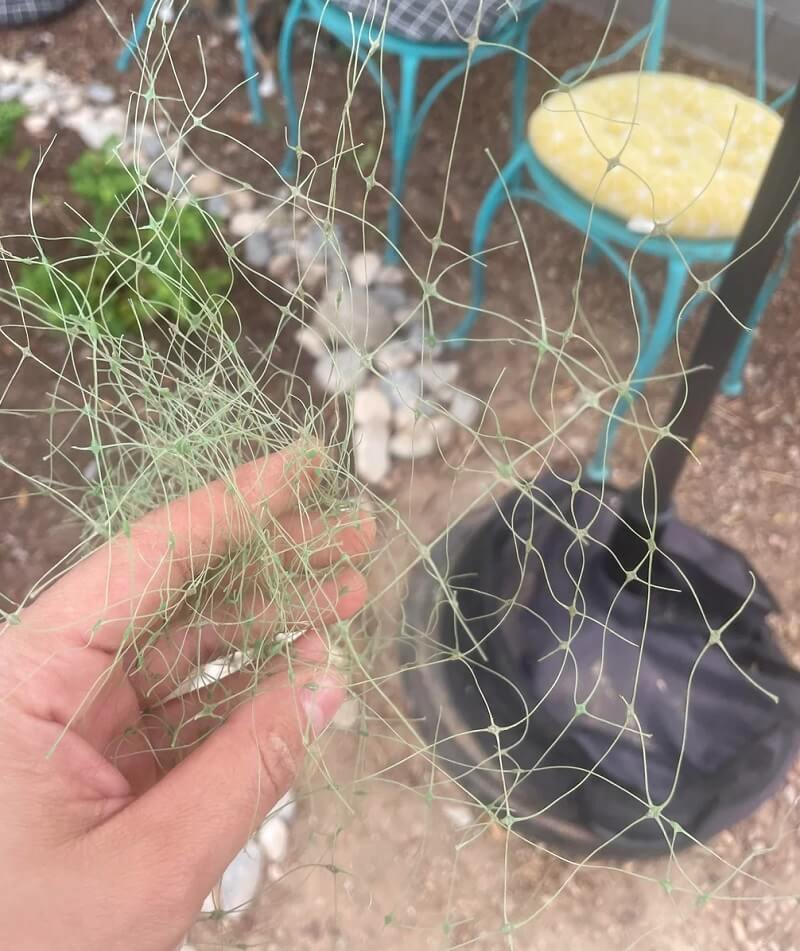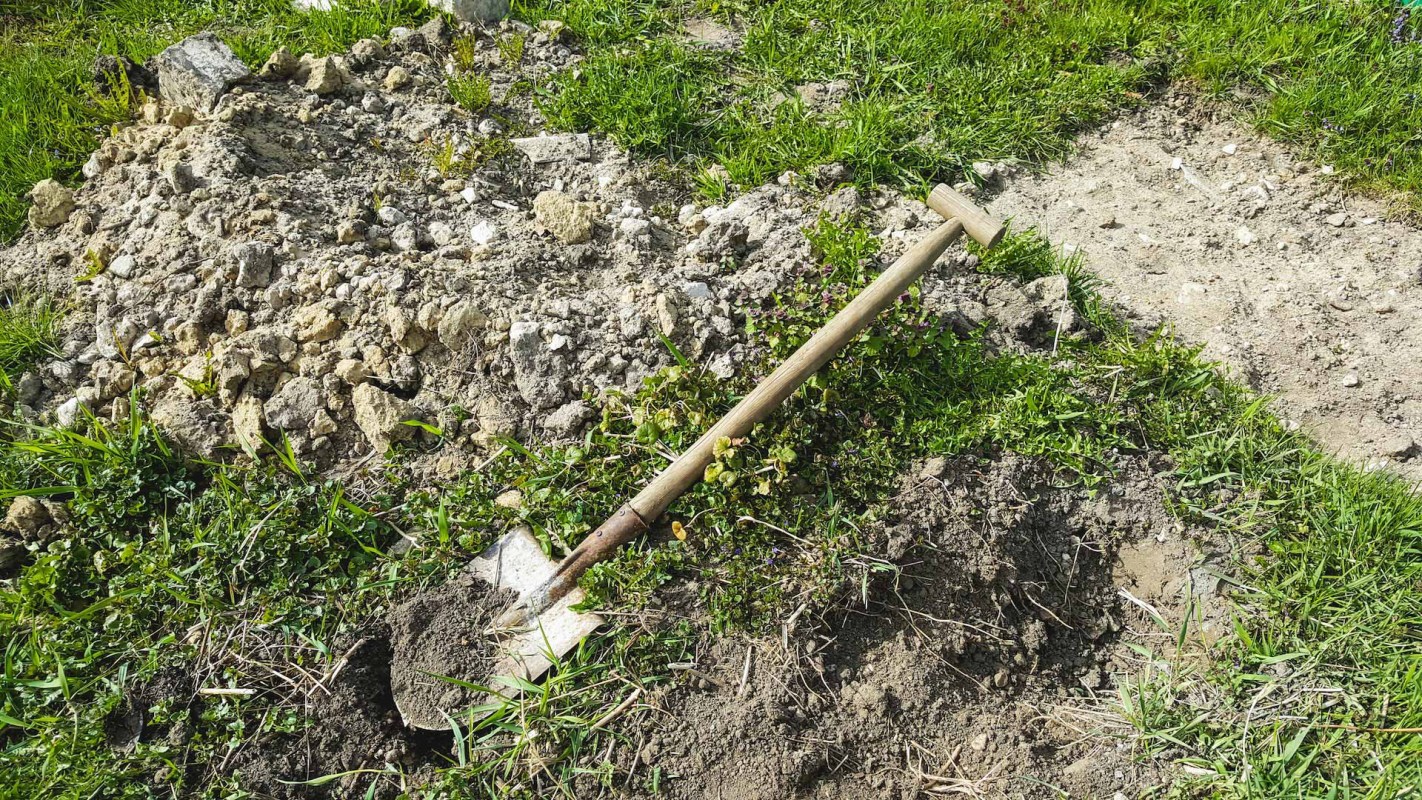When you dig into the Earth to plant a garden, you probably expect to find soil layers and perhaps a few critters, such as earthworms and beetles.
However, one homeowner found something unexpected while doing yard work and posted a photo of the unpleasant surprise in the r/HomeMaintenance Reddit community.

"I've been working on a pollinator garden in the backyard and I keep digging up this green plastic netting. It's only found like 1-2 inches below the surface. Why would someone lay this out over the entire backyard??" the original poster asked fellow gardeners.
The photo shows the poster holding a clump of tangled, thin plastic netting they'd unearthed in their yard.
The OP said in the comments, "It's awful, every time I think I get it all, I find more. There was a heavy rain last night that unearthed even more, and I'm just like, ugh," adding an exasperated face emoji.
As the North Carolina Cooperative Extension explained, it's common for companies to use plastic netting in turf sod and erosion control blankets. The netting may be convenient for transporting or stabilizing grass and soil, but it's hazardous to wildlife that may get trapped in the netting.
In addition, the netting can be a nightmare for gardeners and homeowners since it often gets entangled in lawnmowers and weed eaters. Finally, microplastics may contaminate the soil and groundwater when the netting eventually breaks down.
If you're buying sod or erosion control blankets, check with the company to ensure they don't use plastic netting, or consider planting seeds for turf instead. You can also find environmentally friendly erosion control mats made of coconut, straw, or jute fibers, for example.
While digging up plastic netting can hamper your gardening efforts, installing native plants can bring several personal and environmental benefits. For one, you'll save time and money on lawn maintenance and water bills, even if you only replace your lawn partially with clover or buffalo grass.
You'll also create a healthy ecosystem for pollinators, which are essential to humans since they pollinate many food crops we enjoy.
"It's crazy plastic netting for sod is not banned - great way to contaminate the soil for decades. I had it in my yard and spent a lot of time digging it up and getting rid of it," one commenter complained.
Another shared their troublesome experience with the netting: "It cuts into bare toes (human and canine), jams up the mower, and made it challenging just to walk from A to B without getting tripped up."
"It is marketed as 'photo-degradable' but it's not bio-degradable. Yay micro-plastics!" another quipped.
Join our free newsletter for easy tips to save more, waste less, and help yourself while helping the planet.









